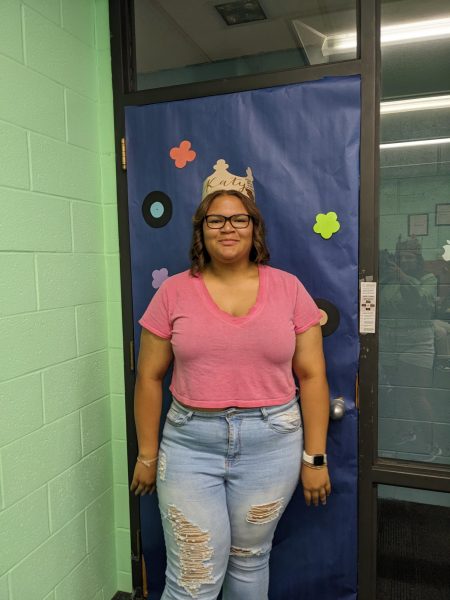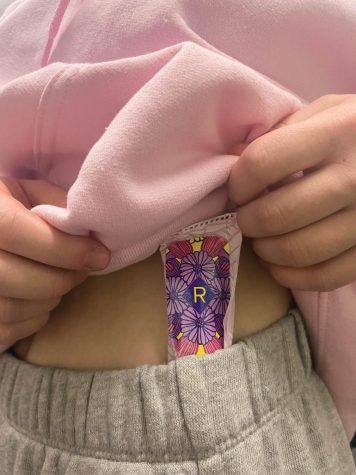Debunking Diabetes
February 5, 2022
Diabetes is a disease in which the body’s ability to produce or respond to the hormone insulin is impaired, resulting in abnormal metabolism of carbohydrates and elevated levels of glucose in the blood and urine. There are 2 types of diabetes, type 1 and type 2.
In type 1, the pancreas can’t make insulin. The body can still get glucose from food, but it can’t get into the cells where it’s needed.
With type 2, the pancreas still makes insulin, but the insulin doesn’t do its job as well as it should in the body.
“I have type 1 diabetes,” James said. “I was eight when I was diagnosed. I started feeling sick one morning and my mom let me lay down and rest the rest of the day, but then I started throwing up everywhere so she took me to the ER. When we got there, the nurse said I had blood sugar in the 300’s”
With health problems come misconceptions and misunderstandings and with so many of them, you can get lost in knowing what’s true and what’s a myth.
“People think it’s a disease that you can catch,” sophomore Cheyenne James said. “It’s a disease but it comes through genetics, but it’s not contagious.
It’s 2021 and technology has greatly improved from 1964, when test strips were first introduced. Now we have easier ways to check and manage blood sugars.
“I keep track of my sugars using a Dexcom CGM (continuous glucose monitor) or a True Metrix meter,” James said. “I usually have to test [my blood sugar] eight to ten times a day.”
Advanced technology allows for smaller and easier transportation for any time of day so now you can carry all your supplies in one bag that’s easily accessible.
“I carry my tester, glucagon tablets, ketone strips, Novolog pens for correcting [my blood sugar] when I get high, and needles,” James said. “And it all stays in my purse.”
But as high school students, we still have to go to school eight hours a day. Diabetes or not. And sometimes, complications can get in the way.
“My day can really be affected by my blood sugar,” James said. “If my sugar is low, I can’t think straight and I usually spend most of my day in the nurse’s office instead of in class. When I’m high, I’m just in a bad mood and don’t want to do anything.”
To some, it can seem confusing and/or complicated having to manage your diabetes on top of high school classes and halls.
What about lunch? Or when their blood sugar drops really low or gets really high? What do they do?
“Some students have special permission and don’t have to come, but if not, they have to come for lunch and when they’re high or low,” nurse Kate Hale said. “When someone is critically high or low, we treat it here and when it’s normal, they go back to class, but if they become unresponsive, we have to call 911.”
Some people can’t help but be judgemental, while others just don’t completely understand it. So they resort to making jokes or asking questions that can sometimes be particularly offensive.
“I’ve gotten asked, ‘Is that heroin?’ before,” James said. “And the ridiculous, ‘This is so sweet it’s gonna give me diabetes.’ It’s very annoying and I really don’t like it.”
But things like that can be easily rectified. With just some more clarity.
“I would want somebody who doesn’t have diabetes to actually do their research, you know, “ James said. “And ask serious questions. I don’t have a problem answering them, but when I’m asked stupid questions, it really gets on my nerves.”
There are certain topics that not everyone understands, but when the confusion occurs, it’s better to be mindful of your questions and do some research of your own.
“Some people don’t understand just how big of a deal diabetes is,” said Hale. “Like type 1 is lifelong.”


Person • Feb 15, 2022 at 11:21 am
Really helped me understand thanks